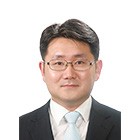Video
Publications
Issue Briefs
Publications | Issue Briefs
The Significance and Challenges
of the 2025 South Korea-China Summit
Lee Dong Gyu
952025.11.14
At the summit between Xi Jinping and Lee Jae Myung in Gyeongju, South Korea and China reaffirmed their “Strategic Cooperative Partnership” and signed seven Memoranda of Understanding (MOUs) related to the economy and public welfare. This has raised expectations both domestically and internationally for the expansion of economic cooperation and exchanges between the two countries, creating a positive environment for the recovery and development of South Korea-China relations going forward. However, no concrete agreements or outcomes were reached on key bilateral issues such as North Korea’s denuclearization, the structures in the West Sea, China’s ban on Korean cultural content (Hallyu ban), and export controls, revealing the differences and disagreements that remain between the two sides on diplomatic and security matters.
Under the pretext of fostering an environment conducive to inter-Korean
dialogue, China is likely to call for the suspension of ROK–U.S. and
ROK–U.S.–Japan joint military exercises, while at the same time voicing support
for the Lee Jae Myung administration’s pursuit of “strategic autonomy.” Through
this, Beijing will seek to distance South Korea from the United States and
reduce Washington’s influence in the region. In this regard, Seoul must
recognize that strengthening “strategic communication” with China carries the
risk of creating unnecessary misunderstandings among the United States and
other like-minded countries. To prevent such risks, South Korea should first
define the scope and limits of its cooperation with China before continuing
dialogue. It should also establish and clearly convey its position to Beijing
on key regional security issues, including the South China Sea and the Taiwan
Strait.
This article is an English Summary of Asan Issue Brief (2025-35).
(‘2025년 한중 정상회담의 의미와 과제’)

Lee Dong Gyu
Research Fellow, Director
Dr. LEE Dong-gyu is a research fellow at the Asan Institute for Policy Studies. Dr. Lee received his B.A. and M.A. from the Hankuk University of Foreign Studies, and Ph.D. in politics from Tsinghua University in China. His research focuses on Chinese politics and foreign policy, South Korea-China relations, and Northeast Asia security. His recent publications include “The Belt and Road Initiative after COVID-19: Implications of Expanding Health and Digital Silkroads,” “Is Political Reform of the Chinese Communist Party Going Back: Changes and Durability of Intra-democracy in the Xi Jinping Era,” “Xi Jingping Thought from the Perspective of the Chinese Communist Party’s Ideological Strategy,” “Development Factors and Specificity of Korea-China Relations in the Cold War Era: 1972-1992,” “A Study on the Sinicization of Marxism after Reform and Opening Up,” etc.
view more


